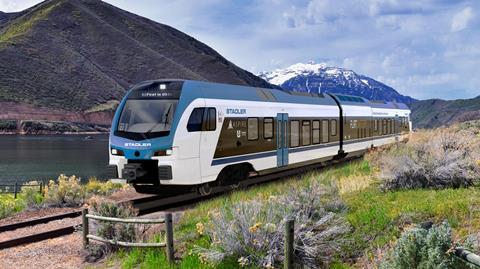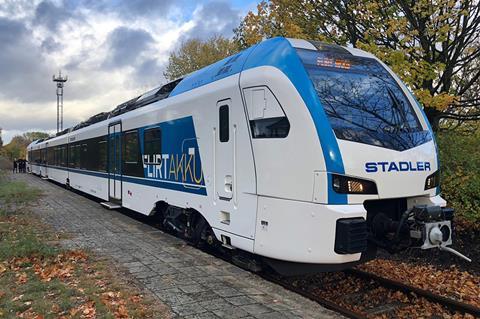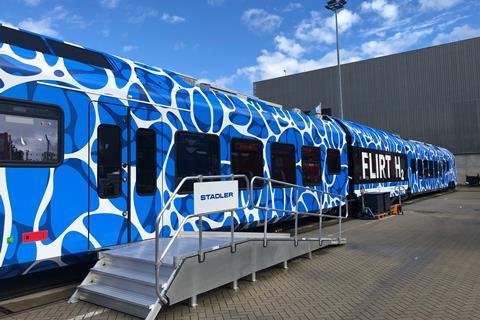
USA: A contract for the development and testing of a battery multiple-unit for the North American market based on Stadler’s Flirt Akku design for Europe has been signed by the Swiss manufacturer, Utah State University and the Advancing Sustainability through Powered Infrastructure for Roadway Electrification engineering research centre.
‘With little to no electrified routes in the North American public rail transit system, a battery train is a great zero-emission alternative to diesel-powered vehicles’, commented Stadler US CEO Martin Ritter when the agreement was announced on February 15. ‘After a contract for a hydrogen-powered Flirt for California, we are now excited to bring our battery solution to the USA.’

The Akku is the battery version of Stadler’s Flirt family of electric multiple-units, offering a range of around 100 km without recharging under normal operating conditions and achieving 224 km in trials.
Stadler has already sold more than 110 Akku units in Europe. The manufacturer is currently developing a hydrogen-powered version of the Flirt family for California’s San Bernardino County Transportation Authority, which was unveiled at InnoTrans 2022 in Berlin.
The partners anticipate that extensive research and development work will be required to adapt the Akku design to North American infrastructure and regulations.

Stadler will concentrate on design and production, with ASPIRE focusing on the development of the trackside charging infrastructure. Subsequent testing by ASPIRE, USU and Stadler is expected to provide insights to support the potential decarbonisation of American passenger transport.
‘Success will bring design and manufacturing jobs to Utah’, said ASPIRE director Dr Regan Zane, adding that the project would ‘chart the path to electrified commuter and light rail systems’ in the state’s Wasatch Front region. ‘The battery-electric train solution will improve air quality and reduce operating costs while supporting shared charging infrastructure with trucks, buses and cars.’

















